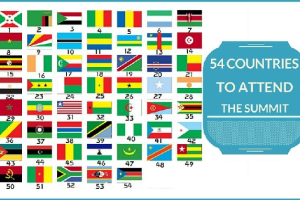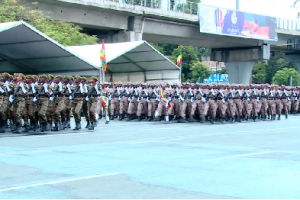
The last six years have been accompanied both by great accomplishments and a bevy of trying challenges. The reform period has indeed been a make-or-break moment for the country marked by great strides and big calamities. Faced with backlogs of predicaments and recurrent problems, the country has been staying afloat and undertaking various initiatives.
Punctuated by conflicts and violence, including the devastating conflict in the northern and other parts of the country, the last reform years also saw headways in many frontiers.
Reversing the great danger facing the country before 2018, Ethiopia also took reform measures in many spheres from economy to diplomacy. Introducing Homegrown Economic Reform, the country has been reforming its economic policies moving into a more liberal market. In the sphere of diplomacy, the country has also been withstanding foreign pressure yet striking a balance between its relations with the East and West and North and South. From joining BRICS to gaining financial assistance from international financial institutions, the country walked a fine line in cumbersome global geopolitics.
The reform has revived the construction of the Abbay dam. And, the country persevered in the face of enemies and against all difficulties, from the signing of the sea access agreement between Ethiopia and Somaliland to the start of electricity generation from the third and fourth turbines of Ethiopia’s Grand Renaissance Dam (GERD).
A new energy revolution for the nation is announced with the completion of the third and fourth turbines and the start of power generation. The massive dam’s development faced numerous obstacles before reaching this point. The initiative has been subjected to persistent defamation and disinformation campaigns. But the last lap of the dam has been made feasible by the unshakable will of the incumbent and the dependence of the Ethiopian people both domestically and internationally. Millions will now be connected to the grid via the project.
Emerging peacefully from the devastating war in the northern part of the country, Ethiopia has made much greater strides toward maintaining peace and security, despite occasional chaos in some areas of the nation. The nation’s security position and humanitarian conditions have improved significantly. There has already been some progress made toward stabilizing the situation, with the nation prepared to hold national discourse and transitional justice.
Another significant achievement is the groundbreaking agreement on sea access that Ethiopia and Somaliland have reached. With this historic agreement, cooperation in the Horn of Africa saw a new start. The two countries’ signing of a memorandum of understanding was also a significant development that paved the way for regional cooperation. Nevertheless, despite the signatories’ resilience and unwavering resolve to carry out the agreement, there has been an alliance of internal and external forces to sabotage the cooperation since the signing. Ethiopia continues to lead the region toward economic unification despite continuous attempts to sabotage the course. Being an anchor state in the Horn of Africa, keeps a neutral and impartial stance in its dealings with the international world. In addition to being accepted into the BRICS group, the nation has been making waves internationally.
Speaking of the economy, the year has been marked by the vigorous implementation of “the Home Grown Economic Reform,” and sweeping economic reform which aims to address the nation’s economic problems with the active support of international financial institutions like the World Bank Group and the International Monetary Fund. On 29 July, the National Bank of Ethiopia bank introduced a floating exchange rate regime. The same day, the IMF Board approved an Extended Credit Facility (ECF) arrangement of about USD 3.4 billion, with a USD 1 billion immediate disbursement. Both global financial institutions announced pledge of USD 16.6 billion of funding over the next three years, including a USD 1 billion IDA grant and a USD 500 million concessional loan. These institutions attest to the country’s correct economic direction, even though the adjustment made to foreign exchange rates has resulted in an immediate inflationary tendency.
This year, visibly Addis Ababa had the most extensive reconstruction and renovations ever, transforming the city into a contemporary, clean, and ecologically pleasant place to live. The corridor project has been completed one after the other giving the city a fine look. With vast green spaces, flowerbeds, and walkways for people to take walks or run during the early morning sports, the Corridor Development Project has completely changed the city, turning it into an incredibly modern place. The project also contains CCTV cameras, which can aid in the fight against any illegal behavior, including infractions of traffic laws and occasionally coordinated band criminal operations.
The city now has a new look with extensive green areas and parks with fountains, with lanes for bicycles and wheelchairs for people with disabilities. Anyone who may have been away from the city for a few years would not recognize it, especially in certain quarters, and finally, residents were overjoyed by such transformation being grateful to the city administration which has been overseeing and conducting the project. People said finally Addis Ababa has the true posture of a deserved Capital of the African Continent where several international conferences are held regularly.
Similarly, several other projects have also been finalized or are in the process of being built. Prime Minister Abiy Ahmed’s “Dine for the Nation” campaign has been a huge success, as evidenced by the completion of tourist destinations like the Gorgora Project in the north, which is home to several tourist attractions. This one would add even more value to the collection of priceless tourist destinations. Other locations include the southern Halla Kella resort and the Lake of Wonchi, which is close to Addis. None of these accomplishments was without difficulty. There have been security issues in Amhara Oromia and other regions of the nation. Economic woes are still being caused by inflation, and the Horn region is about to experience further uncertainty. The nation faces enormous hurdles as a result of these internal and external problems. Once more, the aforementioned success stories demonstrate that the nation can overcome obstacles and achieve its goals with dedication and hard work.
BY DESTA GEBREHIWOT
THE ETHIOPIAN HERALD SATURDAY 7 SEPTEMBER 2024





